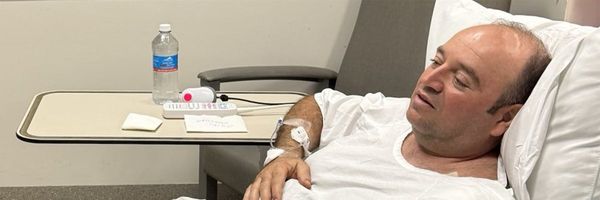
Britons tired of the cost of living crisis that has beset the UK have been thrown a lifeline: an invitation to move to Australia.
But not to Sydney or Melbourne – to the country’s vastest state, home to one of the most isolated cities in the world.
The state government of Western Australia announced on Friday that it wants to lure workers from the UK and Ireland to fill nearly 31,000 job vacancies across a range of sectors, including teachers, police officers, nurses, doctors and plumbers.
The timing of the advert is no accident. February is the hottest month in Western Australia, while Britain is at the tail end of a hard winter.
But the campaign to tempt people to leave has provoked a backlash in the UK – with the British Medical Association, and some MPs, raising concerns about the prospect of losing key workers.
Still, with Britain’s economy in a tough position, and strikes across the public sector over pay, perhaps some staff may be tempted to up sticks.
With the WA government promising “higher wages, lower cost of living and [a] surf-and-sunshine lifestyle”, the Guardian asked Britons already living in the area what those tempted by the offer can expect.

The surf and sunshine lifestyle is true
“It’s like 300-odd days of sunshine,” says Russell Burder, who moved from Essex to Perth where he works in the mining industry. “We haven’t had rain since December, the weather is just glorious.
“Once you sprinkle a few extra 100 days of sunshine on us Brits then we are a much happier bunch; we’re not whingeing Poms any more.”
Matthew Kieran, an academic who moved to Perth from London, says the weather and beaches mean he feels as if he is holidaying in Greece or Spain.
“It’s about a 10-minute drive from where I live to get to a nice beach, and not just one nice beach, there’s a lot of them,” he says.

Western Australia is huge
Western Australia takes up a third of the country’s land mass. It is 10 times the size of the UK. Perth, the state’s capital, is among the most isolated cities in the world.
Even a flight to Sydney on the country’s east coast takes hours.
It’s one thing to know this fact, it’s another to live with it, says Kieran.
“You’re miles from anywhere else, even the country is miles from anywhere else which I don’t think British people realise,” he says. “Don’t expect to be flying backwards and forwards to Sydney all the time.”
Services can be hard to access
Louise O’Neill, who moved from Bath to a rural part of southern Western Australia where she runs Farm Life Fitness, providing one-on-one health and wellness coaching, suspects the government may be looking to recruit people in rural Western Australia.
And life in rural Western Australia can mean a shortage of services.
O’Neill, who has lived in Australia for 12 years, says people would drive an hour and a half to see the physiotherapist because it was the closest one.
“The other day my friend drove five hours to Perth for a 20-minute medical appointment for her son.”
You need a car to get everywhere
Even in the city, public transport in Western Australia doesn’t compare with the UK, says Kieran.
“It’s a very car-orientated place, that was a big surprise,” he says.

It can be cheaper to live
Australia is now experiencing a cost of living crisis, but it doesn’t seem to be as bad as the UK, says Burder, who moved to Australia seven years ago. That’s part of the Western Australia government pitch: “WA salaries are often more than 50% higher than the average English salary for the same occupation.”
Burder says: “You get paid better here and the cost of living is cheaper than in the UK. Talking to my family back in the UK and they’re paying double what I am for gas and electricity.”
Buying a house is also much cheaper, says Kieran.
In London, he says he had a 60 square metre flat with no garden. In Perth, his family bought a three-bedroom house on a 700 square metre plot of land with a garden in the back and front yard.
However, renters may be less lucky, with some towns in the state facing an escalating rental emergency.
Shops close early
“You can’t get a coffee past three o’clock, it drives me nuts,” says Kieran.
Burder says you similarly won’t find much open on a Sunday in Western Australia. “It feels like where the UK was 20 years ago,” he said.

People look out for each other
“There’s a sense of community that I don’t feel like you get in England,” says O’Neill. “Especially in rural communities because there’s not much to do and you’re so far from things and so everyone looks out for each other.”
Being from London, Kieran says he was at first confused by how friendly people are.
“The first few days I was here, a car stopped in the middle of a street. And I was like, why is that car stopping? That’s really weird to me, and then the driver just signalled for me to cross the road.”

Maccas means McDonald’s, servo means petrol station
If you’re homesick, there’s always the comic relief of Australian slang, says Kieran.
“Everyone shortens everything. I was like: ‘What the hell is a servo? What is Maccas!?’” he says.
Burder also has a word of warning for Brits coming to Australia: thongs means flip-flops, not skimpy knickers.







